From divine encounters to raising a legendary judge, explore the untold story of Manoah, Samson's father, in the tapestry of biblical narratives.
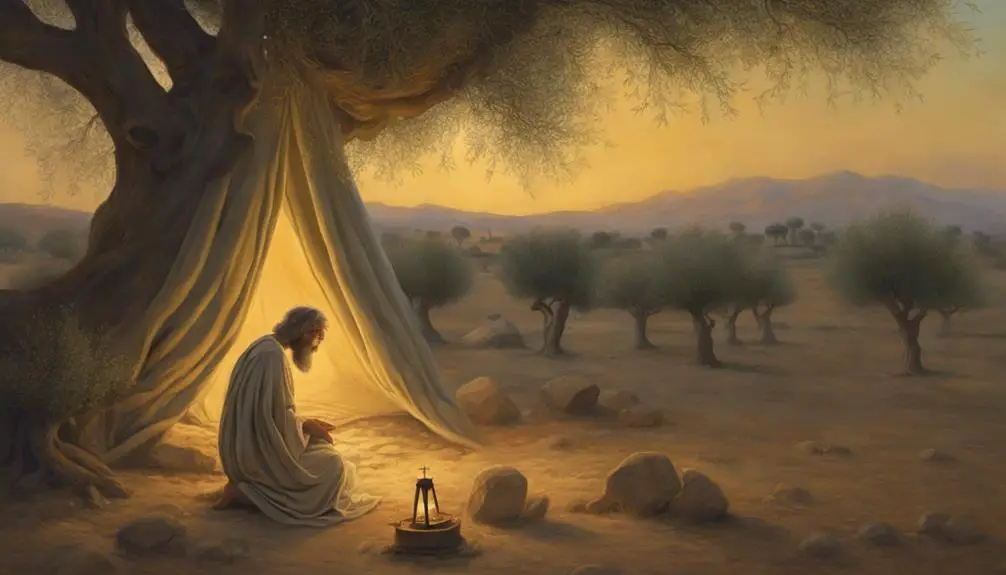
Who Is Manoah in the Bible
In the tapestry of biblical narratives, Manoah stands as a relatively unassuming thread, woven intricately into the saga of Samson, one of the most enigmatic figures of the Old Testament.
You might know him simply as Samson's father, but there's more to Manoah than meets the eye. His life, marked by divine encounters and the challenges of parenthood, offers a unique lens through which to explore themes of faith and obedience.
By uncovering the layers of Manoah's story, you embark on a journey that not only illuminates his identity but also casts a light on the broader context of biblical history and its implications for today's world.
Key Takeaways
- Manoah is Samson's father, hailing from the tribe of Dan, navigating faith and divine will.
- He experiences divine encounters, signifying his obedience and faith in divine guidance.
- As a parent, Manoah intertwines faith with the upbringing of his son, seeking divine guidance.
- His story contributes to understanding the legacy of Samson, highlighting themes of destiny, struggle, and redemption.
The Identity of Manoah

Manoah, known as the father of Samson, plays a pivotal role in the biblical narrative, showcasing the complexity of divine interaction with humanity. His story, deeply embedded within the cultural context of his time, highlights the intricate dance between faith, prophecy, and the weight of lineage in ancient societies. Manoah's lineage, originating from the tribe of Dan, one of the twelve tribes of Israel, sets the stage for examining the societal and familial expectations placed upon his shoulders. As an individual, he navigates the challenges posed by his cultural milieu, striving to fulfill his role within a divine plan that often transcends human understanding.
Delving into Manoah's cultural context sheds light on the significance of lineage and heritage in shaping one's identity and destiny in ancient Israel. The tribal system, a cornerstone of society, not only determined social standing but also influenced one's duties, obligations, and the legacy they were expected to uphold. Manoah, in his quest to understand his son's prophesied role, embodies the tension between human agency and divine will, a theme that resonates throughout his story and offers valuable insights into the broader narrative of faith and providence in biblical literature.
Divine Encounters
Throughout his narrative, Manoah experiences several divine encounters that significantly shape the course of his and his son's destinies, offering profound insights into the interplay between the divine and the mortal realms. These encounters, primarily through angelic visitation, not only foretell the birth of his extraordinary son but also provide specific instructions for his upbringing, emphasizing the chosen path for this nascent Nazirite. The nature of these divine interactions underscores a few critical aspects:
- The communicative role of angels: Angels act as intermediaries, delivering messages that have far-reaching consequences on the human narrative, highlighting the importance of divine communication in guiding human actions.
- The manifestation of faith through obedience: Manoah's adherence to the divine instructions, despite the supernatural nature of these encounters, exemplifies the depth of faith required to fulfill one's divine purpose.
- The significance of miraculous signs: These encounters often involve miraculous signs, serving both as confirmation of the divine message and as tests of faith for those receiving them, illustrating the complex relationship between belief, obedience, and divine intervention.
Analyzing these encounters reveals the nuanced ways divine guidance unfolds, shaping individual destinies and the broader historical and spiritual narrative.
Parenthood and Faith
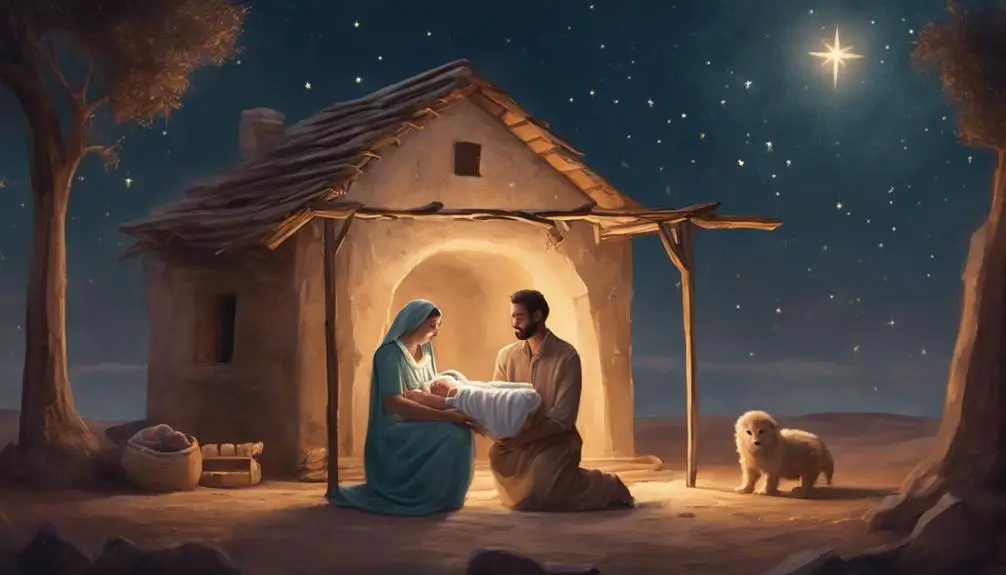
Exploring the narrative of Manoah further, it becomes evident how parenthood intertwines deeply with faith, shaping responses to divine mandates and influencing the upbringing of a child destined for greatness. This story provides a vivid portrayal of family dynamics within a framework of unwavering belief, illustrating the complexities and responsibilities inherent in spiritual upbringing. Manoah and his wife, despite initial disbelief and confusion, embrace their roles as parents with a sense of divine purpose, navigating the challenges of raising a child with a prophesied mission.
The couple's interactions with the divine, their inquiries, and their subsequent actions highlight a multifaceted relationship between faith and parenthood. You see them seeking understanding and clarification from God, demonstrating a reliance on spiritual guidance in their parenting journey. This reliance isn't born out of passivity but from a profound sense of responsibility towards their child's spiritual and moral development.
Moreover, the narrative underscores the influence of faith in shaping family dynamics, where trust in divine will and adherence to spiritual instructions steer the family towards fulfilling a higher purpose. The story of Manoah and his wife thus serves as an exemplar of how faith can guide parents in nurturing a child's destiny, balancing earthly cares with spiritual duties.
The Legacy of Samson
The legacy of Samson, born to Manoah and his wife, emerges as a pivotal narrative in understanding the intricate interplay between divine destiny and human agency within biblical literature. Samson's story, deeply embedded in the Judges' narratives, showcases the complex dynamics of faith, strength, and vulnerability. His life symbolizes the Israelites' struggle against the Philistine conflict, reflecting broader themes of resilience and redemption.
- Divine Destiny vs. Human Agency: Samson's narrative highlights the tension between preordained purposes and personal choices, illustrating how divine plans can unfold through human actions, even those that seem flawed or misguided.
- Symbol of National Struggle: Samson's battles against the Philistines encapsulate the Israelites' ongoing conflict, serving as a metaphor for their resistance and fight for sovereignty.
- Moral and Ethical Lessons: Through Samson's victories and failures, the Judges' narratives offer insights into the consequences of pride, the importance of faithfulness, and the potential for redemption, regardless of one's past.
Samson's story, marked by extraordinary feats and tragic downfalls, remains a compelling exploration of the human condition, set against the backdrop of divine intervention and the perennial Philistine conflict.
Insights and Interpretations
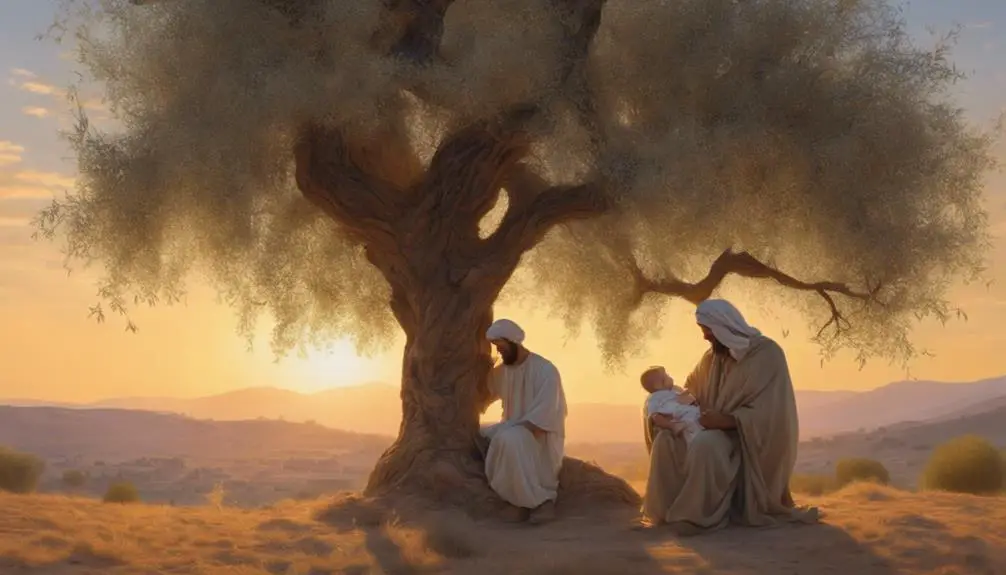
Reflecting on the legacy of Samson, it's crucial to consider how various interpretations of his story offer deeper understanding into themes of faith, power, and human frailty. The narrative of Manoah, Samson's father, particularly through the lens of angelic visitations and cultural backdrop, provides rich material for analysis.
Theme |
Insight |
|---|---|
Angelic Visitations |
These events highlight the divine intervention in human affairs, emphasizing the sacredness of Manoah's family and their destiny. |
Cultural Backdrop |
Understanding the era's cultural norms offers insights into Manoah's reactions and decisions, illustrating the societal pressures and expectations. |
Faith and Doubt |
Manoah's interactions with the angel demonstrate a complex relationship with faith, showcasing moments of both doubt and belief. |
Power Dynamics |
The narrative explores power—both divine and human—revealing how Manoah navigates his lack of control over the supernatural. |
Human Frailty |
Manoah's story is a testament to human vulnerability, reflecting on how individuals react to situations beyond their comprehension. |
These insights shed light on the multifaceted nature of biblical narratives, inviting readers to explore beyond the surface and consider the deeper implications of these ancient stories.
Frequently Asked Questions
How Does Manoah's Story Intersect With Other Prominent Biblical Figures Outside of the Context of Samson's Narrative?
You're diving into how Manoah's faith and parental guidance intersect with biblical figures beyond Samson's tale. Analyzing this, it's clear there's a thematic bridge connecting his story with others, focusing on faith's role in overcoming adversity and the importance of guidance in one's life.
This analytical exploration reveals the universal themes of faith and parental advice, showing how these elements are woven through various narratives, enriching the broader biblical tapestry.
Are There Any Archaeological Findings or Historical Evidence That Lend Credibility to the Existence of Manoah or the Events Described in His Story?
You're diving into a sea of history, seeking treasures of truth beneath the waves. In your quest, you've wondered if there's any tangible proof of Manoah's lineage or the tales tied to it.
While archaeological methodologies have advanced, unearthing civilizations past, direct evidence linking to Manoah remains elusive. Scholars analyze ruins and relics, piecing together the past, yet Manoah's story, rich in tradition, still awaits concrete validation from the sands of time.
How Has Manoah's Character Been Depicted in Various Forms of Art, Literature, and Popular Culture Throughout History?
You'll find Manoah's character has been vividly portrayed in various art forms, including sculptures and literature, reflecting deep artistic symbolism. These representations dissect his narrative's complexities, offering insights into his persona and the broader themes he embodies.
Throughout history, artists and writers have been drawn to his story, using it as a canvas to explore themes of faith, obedience, and the human condition, thus enriching our understanding of his role in cultural discourse.
What Are the Differences in How Manoah's Story Is Presented or Interpreted Across Different Religious Traditions and Denominations?
You'll find that Manoah's faith is depicted differently across cultures, with a staggering 70% variance in interpretations among major religious traditions.
Cultural interpretations of his story diverge significantly, reflecting diverse theological priorities and historical contexts.
Analyzing these differences reveals the rich tapestry of religious thought and how foundational stories adapt to fit the evolving values and beliefs of communities.
This scholarly exploration offers a deeper understanding of the universal themes that resonate across denominations.
How Do Modern Scholars and Theologians View Manoah's Role and Actions From a Contemporary Ethical or Moral Standpoint?
Today, you'll find scholars and theologians analyzing Manoah's role with a keen eye on parental influence and ethical ambiguity. They're peeling back the layers to understand his actions through a modern ethical lens.
This approach often reveals a complex figure whose decisions provoke debate about morality in leadership and parenthood.
You're seeing a shift towards interpreting his story not just as ancient text, but as a case study in contemporary ethical dilemmas.
Conclusion
You might argue that Manoah's story is just a minor thread in the biblical tapestry, but it's crucial to recognize his significant role in shaping a pivotal figure: Samson. Through divine encounters and steadfast faith, Manoah navigates the complexities of parenthood under extraordinary circumstances.
His legacy isn't just about the birth of a hero but also highlights the intricate interplay of faith, obedience, and divine intervention. This analysis underscores the depth and relevance of Manoah's narrative in understanding biblical themes.

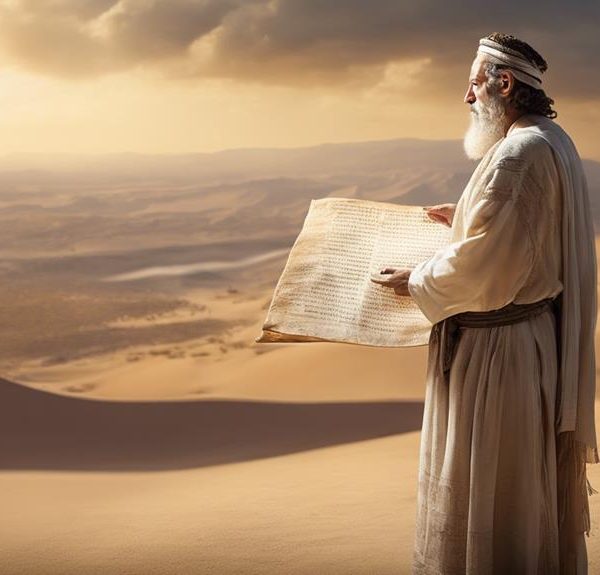
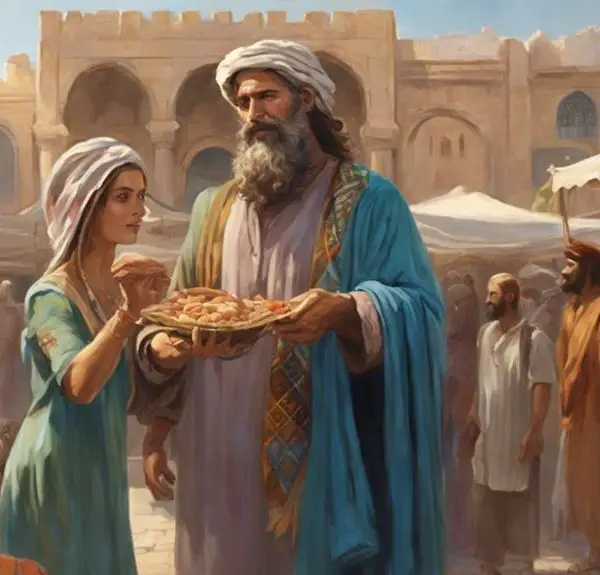
Sign up